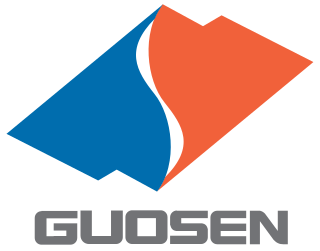
The economy of Pakistan is classified as a low income developing economy. It is the 23rd-largest in terms of GDP based on purchasing power parity (PPP). In 2021, the country had a population of 227 million people. As of FY22, the nominal GDP of Pakistan stands at US$376 billion with a nominal GDP per capita of US$1,658 (177th); its GDP based on PPP stands at US$1.512 trillion with a GDP (PPP) per capita of US$6,662 (168th).
Environmental finance is a field within finance that employs market-based environmental policy instruments to improve the ecological impact of investment strategies. The primary objective of environmental finance is to regress the negative impacts of climate change through pricing and trading schemes. The field of environmental finance was established in response to the poor management of economic crises by government bodies globally. Environmental finance aims to reallocate a businesses resources to improve the sustainability of investments whilst also retaining profit margins.

The Shenzhen Stock Exchange is a stock exchange based in the city of Shenzhen, in the People's Republic of China. It is one of three stock exchanges operating independently in Mainland China, the others being the Beijing Stock Exchange and the Shanghai Stock Exchange. It is situated in the Futian district of Shenzhen.
Funding is the act of providing resources to finance a need, program, or project. While this is usually in the form of money, it can also take the form of effort or time from an organization or company. Generally, this word is used when a firm uses its internal reserves to satisfy its necessity for cash, while the term financing is used when the firm acquires capital from external sources.
In finance, statistical arbitrage is a class of short-term financial trading strategies that employ mean reversion models involving broadly diversified portfolios of securities held for short periods of time. These strategies are supported by substantial mathematical, computational, and trading platforms.
Sukuk is the Arabic name for financial certificates, also commonly referred to as "sharia compliant" bonds. Sukuk are defined by the AAOIFI as "securities of equal denomination representing individual ownership interests in a portfolio of eligible existing or future assets." The Fiqh academy of the OIC legitimized the use of sukuk in February 1988.
A chart pattern or price pattern is a pattern within a chart when prices are graphed. In stock and commodity markets trading, chart pattern studies play a large role during technical analysis. When data is plotted there is usually a pattern which naturally occurs and repeats over a period. Chart patterns are used as either reversal or continuation signals.
In finance, risk reversal can refer to a measure of the volatility skew or to a trading strategy.

The Cairns Convention Centre is a convention and entertainment centre in Cairns, Queensland, Australia. The venue was selected the World's Best Congress Centre in 2004 and 2014.

The Lusaka Stock Exchange is the principal stock exchange of Zambia. Founded in 1993, it is located in Lusaka. The LuSE is a member of the African Stock Exchanges Association.
Corporate venture capital (CVC) is the investment of corporate funds directly in external startup companies. CVC is defined by the Business Dictionary as the "practice where a large firm takes an equity stake in a small but innovative or specialist firm, to which it may also provide management and marketing expertise; the objective is to gain a specific competitive advantage." Examples of CVCs include GV and Intel Capital.
In financial technical analysis, the know sure thing (KST) oscillator is a complex, smoothed price velocity indicator developed by Martin J. Pring.

Guosen Securities Company Limited is a Chinese state-owned financial services company headquartered in Shenzhen, China, with more than 70 branches and 11,500 employees nationwide. It has offices in 47 major cities in China including Shenzhen, Beijing, Guangzhou, Foshan, Nanjing, Shanghai, Tianjin and Hong Kong. Guosen Securities provides sales and trading, investment banking, research, asset management, private equity, and other financial services with both institutional and retail clients in China and Hong Kong. It also operates a trading platform called GuoXin TradingStation.
Werner F.M. De Bondt is one of the founders in the field of behavioral finance. He is also the founding director of Richard H. Driehaus Center for Behavioral Finance at DePaul University in Chicago. Previously, he was the Frank Graner Professor of Investment Management at the University of Wisconsin-Madison, and the Thomas F. Gleed Chair of Business Administration at Albers School of Business and Economics at the Seattle University.
Fundraising plays a central role in many presidential campaigns, and is a key factor in determining the viability of candidates. Money raised is applied for the salaries of non-volunteers in the campaign, transportation, campaign materials, media advertisements and other contingencies. Under United States law, officially declared candidates are required to file campaign finance details with the Federal Elections Commission (FEC) at the end of every calendar month or quarter. Summaries of these reports are made available to the public shortly thereafter, revealing the relative financial situations of all the campaigns.
Retracement in finance is a complete or partial reversal of the price of a security or a derivative from its current trend, thereby creating a temporary counter-trend. Not to be confused with Fibonacci Retracement, market correction and/or market reversal, which are the most popular types of retracements.
The Karachi Interbank Offered Rate, commonly known as KIBOR, is a daily reference rate based on the interest rates at which banks offer to lend unsecured funds to other banks in the Karachi wholesale money market. The banks used it as a benchmark in their lending to corporate sector.

The Capital Markets Union (CMU) is an economic policy initiative launched by the former president of the European Commission, Jean-Claude Junker in the initial exposition of his policy agenda on 15 July 2014. The main target was to create a single market for capital in the whole territory of the EU by the end of 2019. The reasoning behind the idea was to address the issue that corporate finance relies on debt (i.e. bank loans) and the fact that capital markets in Europe were not sufficiently integrated so as to protect the EU and especially the Eurozone from future crisis. The Five Presidents Report of June 2015 proposed the CMU in order to complement the Banking union of the European Union and eventually finish the Economic and Monetary Union (EMU) project. The CMU is supposed to attract 2000 billion dollars more on the European capital markets, on the long-term.





